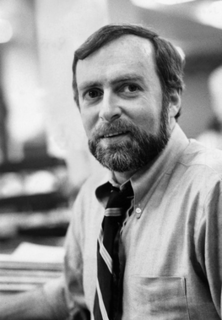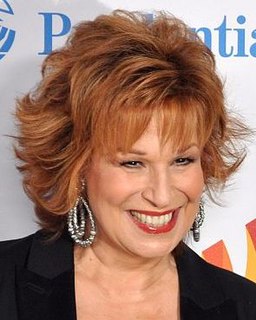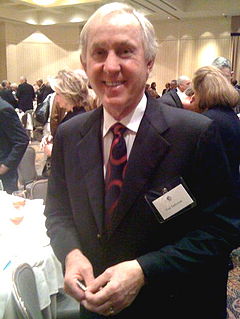A Quote by Sydney Schanberg
Lacey said if he wanted to read a daily or regular critiques of the Bush administration, he would read the New York Times, and that's not what he wanted in the Village Voice.
Related Quotes
I follow my own nose. So I read things that are different. People will always say to me, "Have you read Robert S. Bosco's latest novel?" or "Have you read so and so's history of Peru, which is reviewed in the New York Review of Books and the New York Times and has a buzz about it?" I don't even know what you're talking about. I'm like from another planet. I'm a pygmy from the jungle.
Back when I went to Louisiana State University a million years ago, we got the Baton Rouge paper. But if you wanted to read 'The New York Times' or 'The Wall Street Journal,' you had to go to the reading room of the student union, and you got the edition several days after it had been published, and you had to read it on a wooden stick.
I am a Christian resident of New York City. I simply read things the other Manhattanites read (NY Times, New Yorker magazine, Wall Street Journal, and many of the books they read) plus all my Christian reading. I don't do anything special to understand skeptics. I also talk to a lot of skeptics and read things they point to.
I went to New York. I had a dream. I wanted to be a big star, I didn’t know anybody, I wanted to dance, I wanted to sing, I wanted to do all those things, I wanted to make people happy, I wanted to be famous, I wanted everybody to love me. I wanted to be a star. I worked really hard, and my dream came true.
Walt had a seat-of-the-pants approach on what he wanted musically. We kind of 'read' the boss and had a very high batting average, but there were occasions when he felt we had just written the wrong piece for the situation he wanted. We invariably listened to what he wanted - he was very descriptive in what he wanted and we could read him. We'd go back to the drawing board and work out what he wanted. He was a great inspiration, but a tough taskmaster.
The New York book was a visual diary and it was also kind of personal newspaper. I wanted it to look like the news. I didn’t relate to European photography. It was too poetic and anecdotal for me… the kinetic quality of new york, the kids, dirt, madness—I tried to find a photographic style that would come close to it. So I would be grainy and contrasted and black. Id crop, blur, play with the negatives. I didn’t see clean technique being right for New York. I could imagine my pictures lying in the gutter like the New York Daily News.
































